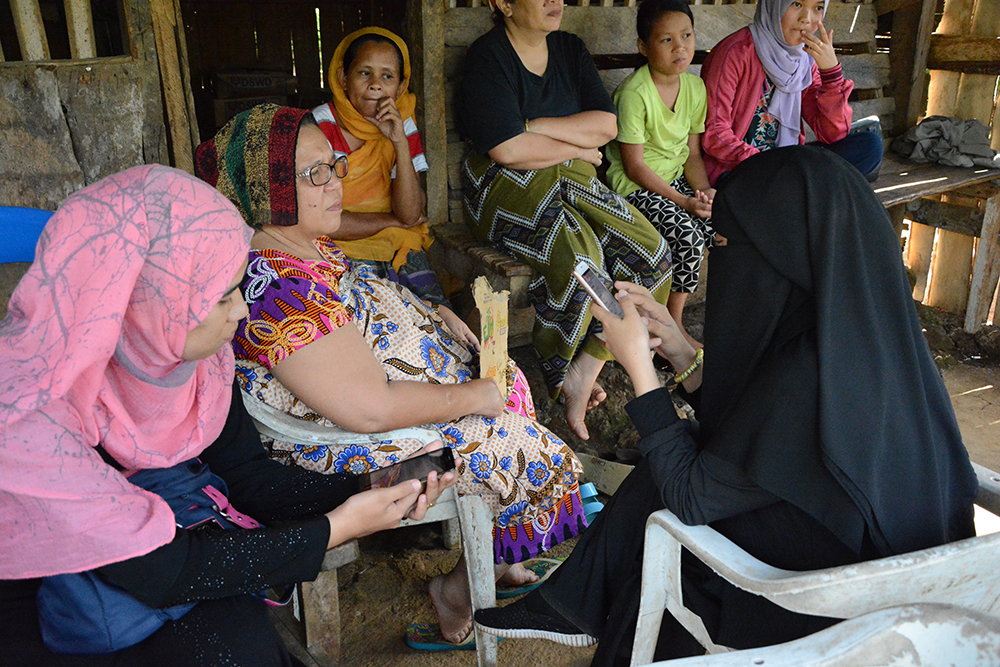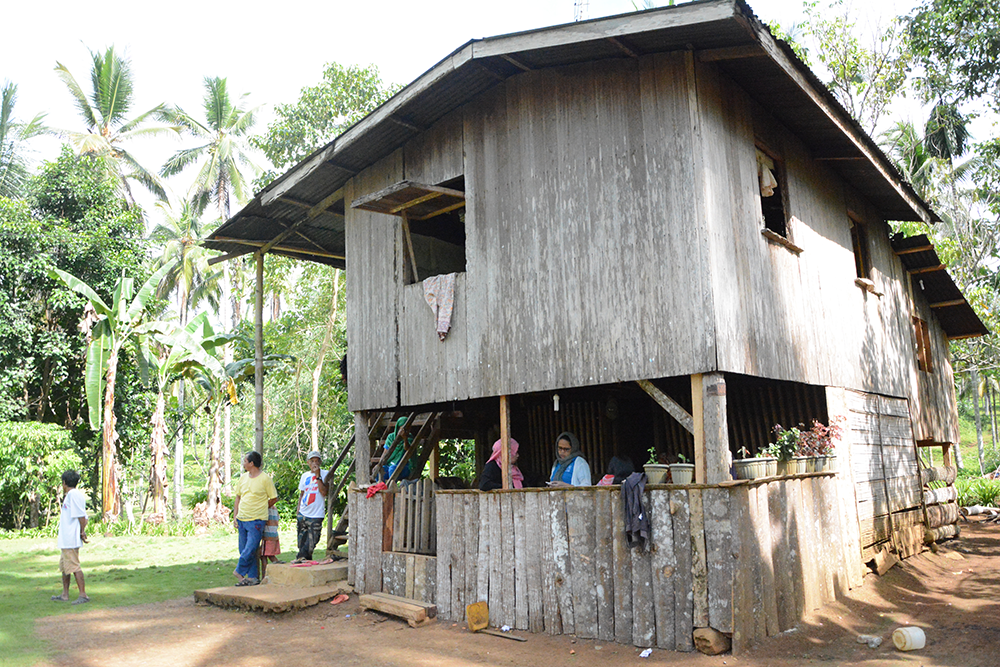IDP youths pursue hopes of being a voice for the community
Hanifah Acmad is one of the hundreds of thousands of the internally displaced persons (IDPs) from Marawi. Led by her hope to be a voice for the IDPs, she and her friends worked with UNHCR to bring into light the issues faced by their fellow IDPs.
Hanifah Acmad wants to be a voice for her fellow IDPs. © UNHCR/A. Gonzales
“I told my cousin, ‘Let’s volunteer. Anyway, we are IDPs ourselves and we know what the needs of the IDPs are,’” shares Hanifah Acmad. This is her third time volunteering as an enumerator following the conflict that broke out in Marawi City over four months ago. She is just one of 205 field enumerators working with UNHCR in conducting the Community Engagement Intent Survey and Needs Assessment among internally displaced persons (IDP) in areas across Lanao del Norte and Lanao del Sur.
The intent survey is carried out by UNHCR and its partners to record the issues faced by the IDPs. Information on the current situation, protection issues, and wishes of the IDPs are collected and consolidated. The data gathered will be used to advocate to duty bearers to ensure that a targeted response is given to the outstanding needs that the IDPs themselves have identified.
In carrying out their surveys, enumerators like Hanifah use KoBo toolbox, a phone application which enables them to encode data using their phones instead of the traditional means of paper and pen. KoBo toolbox is targeted for use by people working in the humanitarian sector for field data collection and analysis. It functions even in areas with little to no reception and stores surveys for use online or offline.

Enumerators like Hanifah (left) and Nor-Asiah (right) conduct surveys to IDPs in different parts of Lanao del Norte and Lanao del Sur. Photo: © UNHCR/A. Gonzales
“UNHCR called for volunteers, and my friends and I came forward. They asked us if we would still do it even without a salary, and we said it’s all right as long as will be able to help them and see for ourselves the situation of other IDPs like us,” Hanifah describes.
“We volunteered so we can interview IDPs like ourselves, so that we can see the situation on the ground. If ever we can help with anything, we will really try to do so,” she says.
Hanifah and another enumerator, Nor-Asiah Takiri, 20, visit different barangays (villages) on foot to conduct surveys. “We find the IDPs by going from house to house,” Hanifah says. “In some villages, the IDPs are the ones who approach us.”
Through the KoBo application, Hanifah shares the ease with which she and other enumerators can carry out her surveys with the IDPs. They have to interview a certain number of people to meet the quota, and KoBo has enabled them to speed up the process of interviewing.
Today, Hanifah and Nor-Asiah are in Pangi, Matugao in Lanao del Norte. They have come across Apipa and Allan Amor and their four children, who are hosting 11 other families in their home.
Allan shares that with meager resources, they still try to manage. “We only use one pot to cook our food for everyone, but we cope,” he says. More than 25 individuals now live in their home. “What can we do? They are our relatives.”

In this house, Apipa and Allan Amor host 11 other families who fled from Marawi. Photo: © UNHCR/A. Gonzales
Some of his relatives made dangerous trips just to flee from the firefights, and one of them even died on the way to safety. An infant also died because of complications from diarrhea. Most of them who fled were only able to bring the clothes they had on their backs and nothing else.
“They were not able to bring anything with them when they fled because they didn’t expect the conflict to drag on for this long. They have experienced being displaced but were able to come back home after three days,” Hanifah says. “This time, however, frustrations built up since the conflict has dragged on for over three months.”
“You listen to what they have to say and see the situation they are in, and I’m thankful, really, because at least my situation is slightly better compared to theirs,” shares Hanifah.
In her mission to amplify the voices of her fellow IDPs, Hanifah helps UNHCR in collecting data. From August 21 to 28, enumerators like Hanifah visited IDPs to gather data on the profile, current situation, and intentions of the IDPs. Through the survey, IDP youths like Hanifah are given the opportunity to shape the early recovery and rehabilitation policies to be carried out in the weeks to come.
Spearheaded by UNHCR, the project is supported by 25 local and international organizations such as the International Organization for Migration, the World Food Programme, the United Nations Office for the Coordination of Humanitarian Affairs, and the United Nations Children’s Fund.
As the response transitions to early recovery and rehabilitation, UNHCR advocates for a greater participation of IDPs in decision-making processes and in shaping the national plan of Task Force Bangon Marawi. UNHCR aims to turn over the data to the government through the task force.
